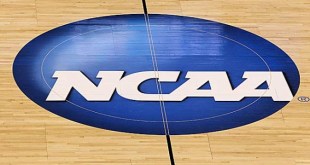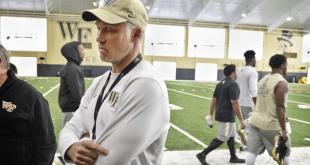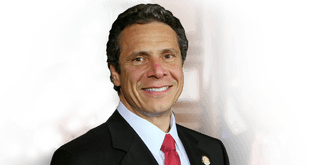The timeline to bring legal sports betting to the United States was pushed back significantly after the Third Circuit Court of Appeals ruled, in a 2-to-1 decision, against Governor Chris Christie and the State of New Jersey earlier this week. The decision by the federal appeals court in Philadelphia upheld a lower-court ruling that had voided legislation enacted by New Jersey legalizing sports gambling.
Déjà Vu
If this sounds familiar, it’s because we’ve been here before. In 2012, New Jersey passed a law that permitted sports betting at casinos and racetracks across the Garden State. New Jersey’s push to legalize sports betting was largely motivated by an effort to boost its struggling economy. The implementation of sports gambling was forecasted to generate millions of dollars in tax revenue for the State, as well as provide a huge boost to a tourism industry largely buoyed by the East Coast’s gambling Mecca – Atlantic City.
Christie’s efforts were stymied, however, by the NCAA and all four major U.S.-based professional sports leagues – the NFL, NBA, MLB, and NHL (the “Leagues”) – who, in August 2012, filed a lawsuit seeking to prevent the implementation of Christie’s sports gambling law. The Leagues’ case was primarily based on the argument that New Jersey’s legislation violated a 1992 federal statute, the Professional and Amateur Sports Protection Act (“PASPA”), which restricted certain forms of state-sponsored sports gambling to a handful of states that were grandfathered in under the law.[i] Christie, in turn, challenged that PASPA was unconstitutional, with arguments grounded in Tenth Amendment and Equal Sovereignty principles.
On February 28, 2013, the United States District Court for the District of New Jersey ruled against Christie, holding that PASPA was constitutional and preempted New Jersey’s sports betting law.[ii] Following an appeal, on September 17, 2013 the U.S. Court of Appeals for the Third Circuit upheld the district court’s decision.[iii] Despite its ruling, many interpreted the court’s majority opinion as having provided a “pathway” for states to legalize sports betting without running afoul of PASPA – by allowing states to decriminalize sports betting. According to the court:
[PASPA] . . . leaves much room for states to make their own policy. Thus, under PASPA, a state may repeal its sports wagering ban, a move that will result in the expenditure of no resources or effort by any state official. On the other hand, a state may choose to keep a complete ban on sports gambling but it is left up to each state to decide how much of a law enforcement priority it wants to make of sports gambling, or what the exact contours of the prohibition will be.[iv]
Sensing an opportunity based on the language used by the court in its opinion, New Jersey attempted an end-around. Instead of approving legislation that would expressly authorize sports betting, New Jersey instead partially repealed its current state-law prohibitions against sports gambling, thereby allowing it only in state-licensed and state-regulated casinos and racetracks.[v] The thought was that by partially repealing the state laws restricting sports betting, New Jersey was “deregulating” and essentially removing state control. Therefore, its partial repeal would not be preempted by PASPA, which provides that government entities may not “sponsor, operate, advertise, promote, license, or authorize” sports betting.
It goes without saying that the Leagues again challenged New Jersey’s efforts. According to the Leagues, by trying to only allow sports betting in state-licensed casinos and racetracks, New Jersey was not just authorizing sports gambling, but essentially licensing it as well. This August, the court once again found in favor of the Leagues, saying that Christie can’t use “clever drafting” to get around the federal law. “We acknowledge New Jersey’s salutary purpose in attempting to revive its troubled casino and racetrack industries,” the court’s opinion said. “We now turn to the primary question before us: whether the 2014 law violates PASPA. We hold that it does.”
The Impact
The court’s decision was undoubtedly a significant blow for advocates of sports betting and for Christie, who spent millions of dollars in litigation. Had Christie been successful, it would have provided a roadmap for individual states to legalize revenue-injecting sports betting laws. According to Daniel Wallach, a partner at Becker & Poliakoff, P.A., and a leading expert on gaming law, “a victory by New Jersey would have had an immediate and dramatic impact on the sports betting industry — namely, there would be unregulated sports betting in New Jersey and other states would pass similar legislation to mimic New Jersey’s approach.” Other states or Indian tribes could still pass sports betting laws and press a PASPA challenge in another federal circuit – the Third Circuit’s holding is only binding precedent on the three states within its jurisdiction, New Jersey, Pennsylvania and Delaware – but winning such a challenge might be a long shot after a federal court has now ruled twice on, and affirmed each time, the legality of PASPA.
A victory by New Jersey may also have forced Congress to act swiftly to amend or repeal PASPA. For example, NBA commissioner Adam Silver is on record that he believes the expanded legalization of sports gambling is “inevitable,” and that, in fact, his league stands to benefit from it. What Silver does not want, however, is incremental, state-by-state legalization – particularly of the “unregulated” variety proposed by Christie. Rather, he wants a comprehensive, federal overhaul to America’s gambling law. By repealing or amending PASPA, people across the country would be able to bet on sports, and more importantly, the Leagues and law enforcement could tightly monitor and control the American betting market, keeping an eye out for irregular betting activity that could indicate corruption.
The court’s decision, however, allows Congress and the Leagues to kick the can down the road, as there’s no longer an urgency to make any sweeping changes to the law prohibiting sports gambling that is currently on the books. The legalization of sports gambling may still be “inevitable” – following the recent ruling NBA spokesman Mike Bass stated that the league continues to support a federal legislative solution – but the timeline for any substantial changes has likely been pushed back by at least a few years (read: whenever the Leagues and Congress are ready).
The biggest winner from the Third Circuit’s decision is probably the fantasy sports industry – especially those offering “daily fantasy sports.”[vi] While PASPA prohibits state-sponsored sports betting, another federal statute, the Unlawful Internet Gambling and Enforcement Act of 2006 (“UIGEA”), created a safe haven for payment processors and operators of fantasy sports games that meet certain criteria. A logical reading of UIGEA presumes that most of these fantasy sports games also lie outside of the purview of PASPA, as long as they are deemed games of skill in all relevant states in which they operate.[vii]
57 million people in the United States and Canada participated in fantasy sports in 2015, according to research conducted by Ipsos — a market research company — for the Fantasy Sports Trade Association. Further, the two biggest daily fantasy sports operators, FanDuel and DraftKings, each have been valued at more than $1 billion. Yet, those numbers are dwarfed by the potential for sports gambling, where it is estimated that that anywhere between $80 billion and $380 billion is illegally wagered annually. With the Third Circuit’s decision likely putting sports betting on the backburner for now, the fantasy sports industry, already with the Leagues’ support, remains free from direct competition in the U.S. from most forms of traditional sports gambling, setting the stage for fantasy sports’ continued growth. [viii]
Last Chance
The ruling by the three-judge panel does not necessarily mean the New Jersey sports betting litigation is over. Christie could ask for a re-hearing “en banc,” which would mean asking all 23 judges in the Third Circuit, not just the three that heard the case, to weigh in. New Jersey is expected to ask for the review. En banc reviews, however, rarely happen and are typically only granted in exceptional circumstances. Given the strong language used in the dissent, some legal scholars think New Jersey’s chances of getting such a review are good in this case.
If that request is denied, there’s always the possibility of appeal to the Supreme Court, which would require the state filing a writ of certiorari. Yet, only about 1% of petitions are accepted by the Supreme Court – and it has already declined to hear New Jersey’s appeal the first time around. As it appears to have been from the start, the ultimate odds of success are once again stacked against New Jersey.
[i] Nevada, Delaware, Oregon and Montana were all permitted to continue the sports-related gambling operations that were already in place in their states, with Nevada being granted the widest scope and the others limited to certain sports-gambling “lottery” games. S. Rep. 102-248 (1991).
[ii] Judge Michael Shipp ruled that some of the questions raised in the case were novel, but he suggested the best way to change PASPA was to get Congress to repeal or amend it. NCAA v. Christie, 926 F.Supp.2d 551, 555 (D.N.J. 2013).
[iii] While the Court stated that it was “cognizant that certain questions related to this case — whether gambling on sporting events is harmful to the games’ integrity and whether states should be permitted to license and profit from the activity — engender strong views,” it declined to “judge the wisdom of PASPA or of New Jersey’s law, or of the desirability of the activities they seek to regulate” and held that “New Jersey’s sports wagering law conflicts with PASPA and, under our Constitution, must yield.” NCAA v. Governor of New Jersey, 730 F.3d 208 (3d Cir. 2013).
[iv] Id. at 233.
[v] New Jersey lawmakers didn’t want to completely get rid of their state prohibitions on sports betting, though, which would send gamblers to newly emboldened neighborhood bookies.
[vi] Unlike traditional fantasy sports leagues, in which the final standings typically aren’t determined until an entire professional or amateur season runs its course, most daily fantasy sports (“DFS”) contests last only a day or a week. A detailed analysis of the evolution and legality of fantasy sports, including DFS, can be found here.
[vii] Fantasy sports involve skill rather than chance, and skill-based games generally fall outside gambling prohibitions. Of course, those who are skilled at sports betting would argue that their success has much more to do with skill than chance, but federal law nonetheless treats sports betting and fantasy sports as separate creatures.
[viii] The Third Circuit’s opinion in the New Jersey case also contained some interesting dicta pertaining to daily fantasy sports. (See Page 21 of the Opinion). In its briefs, New Jersey contended that the Leagues should not be entitled to a favorable decision because they had “unclean hands.” Essentially, New Jersey argued that the Leagues were “hypocrites” because they encouraged and profited from sports betting, noting that the NFL has been scheduling games in London where sports gambling is legal; that the NCAA holds events in Las Vegas where sports gambling is legal; and that the Leagues sanction and encourage “fantasy sports betting.” In ruling against New Jersey, the court held that the Leagues did not have unclean hands because it was “not ‘unconscionable’ for the Leagues to support fantasy sports and hold events in Las Vegas or London.” It can therefore be inferred that the court did not view fantasy sports for money and sports betting as one and the same, or it may have come out differently on this particular issue. With daily fantasy sports expected to face legal challenges in the near future, don’t be surprised if fantasy sports organizations favorably cite to the Third Circuit’s opinion.
 The Sports Esquires Putting Sports on Trial
The Sports Esquires Putting Sports on Trial




